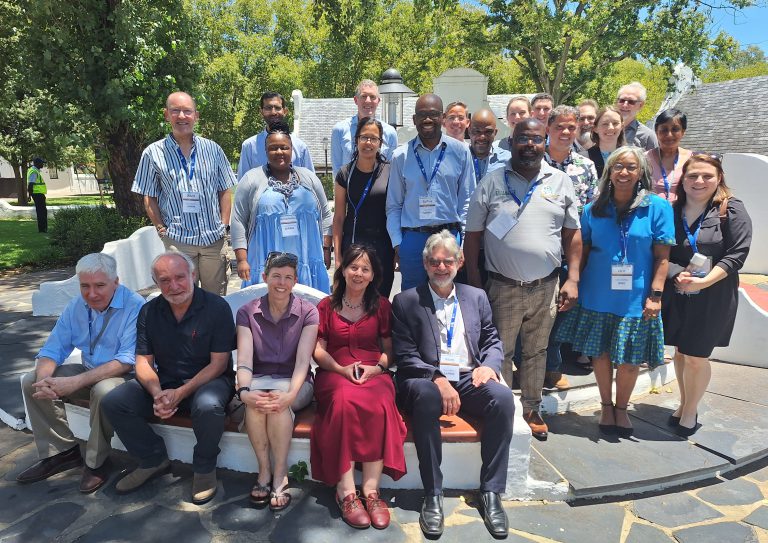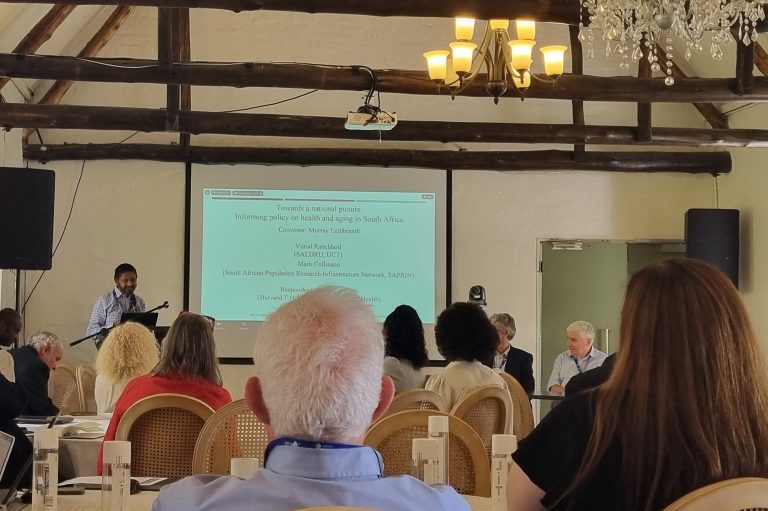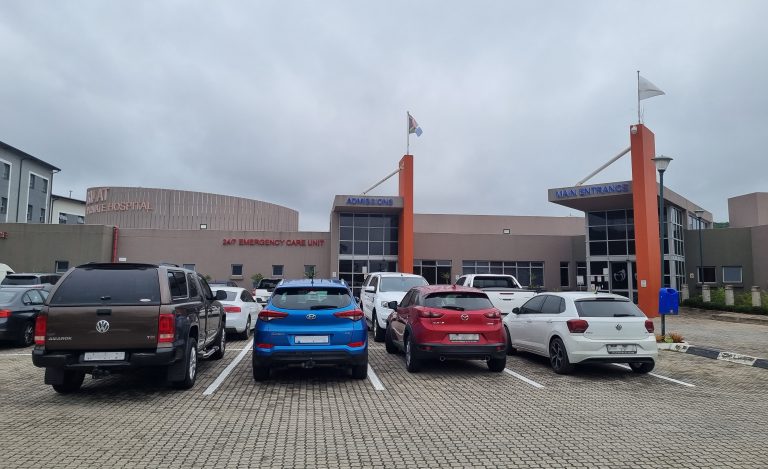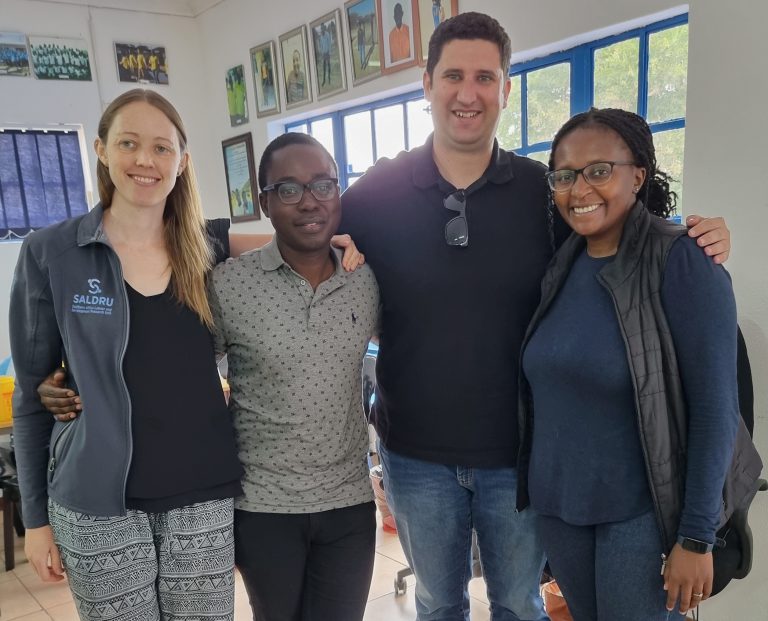HAALSA symposium and Agincourt field visit

Image: Murray Leibbrandt speaking at the Health, Ageing and Dementias in Southern Africa: Addressing inequities over the life course symposium. Credit: Kim Ingle.
A consortium of researchers from the Harvard Center for Population and Development Studies, the MRC/Wits Rural Public Health and Health Transitions Research Unit (Agincourt) of the University of the Witwatersrand, and SALDRU, were granted funding from the United States’ National Institute on Aging (NIA) for a 5-year extension of The Health and Aging in Africa: A Longitudinal Study in South Africa (HAALSA). This grant renewal involves a major expansion of the project with a focus on dementia and cognitive decline, alongside the major diseases and disorders (cardiometabolic disease and HIV) that impact cognitive function and their relationships to aging and socio-economic status.
HAALSA is an ambitious program that seeks to investigate these issues in a harmonised way at three levels: two further rounds of an existing longitudinal study on health and aging in Agincourt (HAALSA-Indepth); the first round of a new nationally representative South African longitudinal study on health and aging (HAALSA – Health, Aging & Retirement Panel Study (HAALSA-HARPS)), and pilot work run in collaboration with the South African Population Research Infrastructure Network (SAPRIN) in a number of their sites (HAALSA-SAPRIN). The implementation of HAALSA-HARPS will be led by SALDRU. The Principal Investigators of this component of the program are David Canning from Harvard, and SALDRU’s Murray Leibbrandt.
Members of the SALDRU team working on HAALSA-HARPS, together with SALDRU’s Director Reza Daniels, travelled to Johannesburg for the formal launch of HAALSA at a public symposium on 6 February, as well as several days of associated workshops and meetings. Some of the SALDRU team then travelled on to Agincourt, to attend the fieldworker training for the fourth round of the HAALSA-Indepth panel, as preparation for similar work at the national level.
The launch itself was anchored in a full three-day programme at the University of the Witwatersrand. On 5 February, the HAALSA consortium met for a scientific meeting on the study. As part of this meeting, SALDRU’s Murray Leibbrandt, together with Harvard’s David Canning, outlined the background and aims of the HAALSA-HARPS study, and shared potential innovations on measuring economic conditions that could be incorporated into the study. SALDRU’s Kim Ingle also shared some preliminary analysis by a group of HAALSA researchers, comparing trends in mortality in the National Income Dynamics Study and some SAPRIN sites. The scientific meeting was followed by a HAALSA Scientific Advisory Board (SAB) meeting. Strong representation from the South African policy community has been added to the HAALSA SAB.
On the morning of 6 February, most of the SALDRU team attended a HAALSA meeting with SAPRIN nodal heads, with the rest of the team attending a workshop on how to use the HAALSA-Indepth data. During the meeting with the SAPRIN nodal heads, Mark Collinson, the Co-Director of SAPRIN, led an engagement over SAPRIN’s involvement in HAALSA.

In the afternoon, the public launch symposium on Health, Ageing and Dementias in Southern Africa: Addressing inequities over the life course was held. The symposium comprised sessions which delved into the global and local setting of HAALSA; previous findings from HAALSA-Indepth; the contribution that a national study brings to HAALSA; different groups’ perspectives of growing older in South Africa; the importance of studying ageing, cognition and dementias in low- and middle-income countries; and the link between aging research and policy in South Africa.
Among these, SALDRU’s Murray Leibbrandt convened a session on Towards a national picture: Informing policy on health and ageing, during which SALDRU’s Vimal Ranchhod gave an overview of HAALSA-HARPS. Murray also convened a session on Addressing inequalities in pursuit of a long, healthy and productive life for all at which three senior policy makers, Diego Iturralde, Thulani Masilela and Imraan Patel spoke to their work and how HAALSA would enable better policy making within their spheres.

A Harmonized Cognitive Assessment Protocol (HCAP) in Africa networking meeting was held on the morning of 7 February. The HAALSA studies will each administer a detailed HCAP battery to a sub-sample of their study. This will allow for the derivation of algorithms to determine mild cognitive impairment and dementia in the full cohorts of these studies.
During the HCAP in Africa meeting, attendees heard about the HCAP conversion and adaptation work that was done by the HAALSA-Indepth team, in preparation for its use in the previous round of HAALSA-Indepth. Attendees also learnt from representatives from Kenya, Ghana and Malawi, about their experiences and progress in converting, administering and testing the use of HCAP in studies in these countries. Of particular interest to the SALDRU team were robust discussions on specific issues related to administering HCAP in multi-lingual environments. The HAALSA-Indepth HCAP instrument is administered in Tsonga, as this is the dominant language in Agincourt. This instrument will be converted to the remaining South African languages, and then administered to a subset of HAALSA-HARPS study participants, across South Africa. This is frontier science and HAALSA was fortunate to have the participation of world-class expertise at this meeting.
Taking advantage of the presence of our HAALSA SAB and other African collaborators who have decades of experience in data gathering and research on health and well-being in Africa, a meeting was held in the afternoon to gauge the potential merits of and steps towards establishing a network of those working on Ageing in Africa. This was co-chaired by SALDRU’s Murray Leibbrandt, together with Harvard’s David Canning.
The following day Brendan Maughan-Brown, Katherine Eyal, Tim Brophy and Kim Ingle joined those in the HAALSA group who were travelling on to Mbombela (formerly Nelspruit). Over the course of their trip, this group visited the imaging facility at Kiaat Hospital in Mbombela, utilised by some brain imaging studies of sub-groups of the HAALSA-Indepth cohort; attended a demonstration interview in the Agincourt community; visited the Agincourt Community Health Centre and the Agincourt Research Laboratory; and toured the SAMRC/Wits Rural Public Health and Health Transitions Research Unit field research centre.

The following Monday, fieldworker training for the fourth round of HAALSA-Indepth began. Tim Brophy and Kim Ingle from the SALDRU team attended this training, which was just over two weeks long. This was invaluable in allowing them to experience the full HAALSA-Indepth training process, gain deep understanding of the questions asked in HAALSA-Indepth, and the various HAALSA-Indepth fieldworker protocols. HAALSA-Indepth and HAALSA-HARPS are harmonised studies and administering many of these questions in a national survey will be very challenging. Thus, all of these insights will help the HAALSA-HARPS team plan ahead for all aspects of the national fieldwork and the fieldworker training.

All in all, the official launch of HAALSA and the rich programme of complementary activities conducted around the launch provided the needed foundations for this ambitious study. The SALDRU HAALSA-HARPS team is grateful to our HAALSA collaborators at the University of Witwatersrand for hosting them for this trip. The trip fast-tracked learnings relevant to preparations for the HAALSA-HARPS study, that would otherwise have taken months to accumulate. The fourth round of HAALSA-Indepth data collection is due to start soon, and the HAALSA-HARPS team will be working on the HAALSA-HARPS survey instruments and protocols in the coming months.
